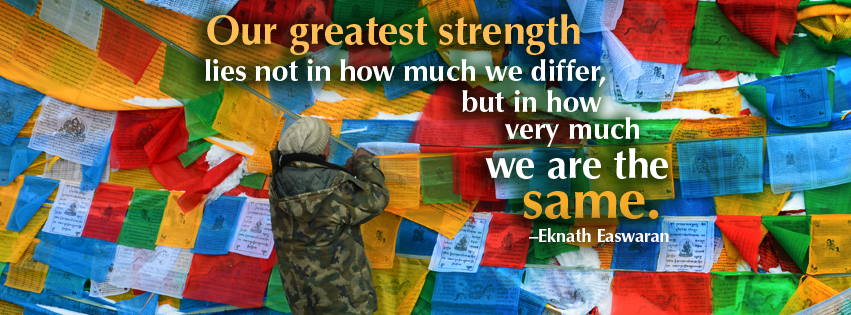
On Facebook an acquaintance had posted a picture of a person who had multiple piercings, tattoos, and other modifications to her appearance that were covering much of what was visible. The caption was “use one word to describe.”
It had been up for a good part of the day when I noticed that the comments were mostly negative. Ugly. Disturbed. Confused. Sad.
After some thought I decided I needed to say something. I realized that while the person in question was not aware of this post, and probably has heard it all, not saying anything, to me, was a silent acceptance of this kind of aggression.
Now you may say: “oh those folks are having an opinion,” or “it’s not mean, they’re not saying it to the person’s face.”
I disagree, this seemingly no-harm conversation was really a venue to say it’s ok to judge and/or condemn someone based solely on their appearance. In addition, the commenters got the added boost of feeling superior to this unknown person.
What’s that about? Why do we have this urge to put down someone who has decided to not conform to social norms?
I wonder sometimes if there’s a little jealousy in there. I know many folks feel as if they must dress/act/groom within certain parameters to be ‘ok.’ When this person shows up totally breaking the ‘rules,’ does it make you uncomfortable? Is it in part because it challenges the assumption that you should conform to a particular norm?
My story is not as extreme. I had wanted to put blue streaks in my hair since I was a teenager, I finally did it when I was 31. It took that long because of parameters others (such as employers) put on me as well as my own buying into the pressure of the world. Once I dyed my hair I had detractors telling me that I couldn’t get a job as a minister with teal/blue hair. What I realized is that I could conform on the outside, but it wouldn’t change who I was on the inside, and a ministry that wasn’t ok with my blue/teal hair, wouldn’t be a good fit for me anyway! Now, after almost 6 years with colored hair, I can say that it’s become much more common to see (oh the fickleness of fashion), and that it has opened doors with people who are often sidelined by mainstream religion. And of course since you’re reading this, it means I also found a great ministry match.
The person in the picture on Facebook had obviously spent much time, money, thought, and pain in transforming her look. I called it creative, bold, expressive. I called it brave for being who she wanted to be.
If you notice yourself judging someone else’s choice of expression might I suggest some alternate responses:
- Wow! I’ve never seen anything like that before.
- Hmm, I wouldn’t make that choice for me, but I bet he/she has a really interesting story.
- I’ve never seen those colors together before, I’m not sure it works to my eye.
- That’s not my preference.
- Or you could just talk to the person as a person and not say ANYTHING about their choices in outer expression.
You wouldn’t (hopefully) judge a person for wearing something that was a symbol of their faith such as head coverings, prayer shawls, or keeping their hair in a certain way. Why condemn someone for their bravery in expressing their authentic self? Even if it’s not your preference? Even if your social norm doesn’t align?
Do I participate in condemning others for something as superficial as their appearance? Why would I waste my time putting someone else down? Don’t I have something better to do? Do I truly gain anything?
In our current climate, where our interconnectedness is accentuated by all these social media and hype websites, we get to choose what we put out there. Judging someone for their choices in physical expression is only a step away from making the person wrong/bad/other. When a person is wrong/bad/other, it is only a step away from them being not as valuable as those who are ‘right’. When a person is not as valuable as others, their problems, suffering, and feelings don’t matter. And then, their life doesn’t matter.
If this seems extreme to you, think for a moment how various ‘outsider’ groups have been treated in history. It’s not pretty. That’s why I maintain that the condemning remarks about this uniquely expressing person on someone’s Facebook page matter. It served no purpose except for the poster to feel superior and others to condemn.
Some of the best advice we’ve all heard at some point is ‘if you don’t have anything nice to say, don’t say anything at all.’ It’s so simple, and yet, I believe it is one of the keys to creating a more harmonious, safe, and loving world.
Will you join me in shifting the cycle of violence to one of compassion?
Rev. Ra